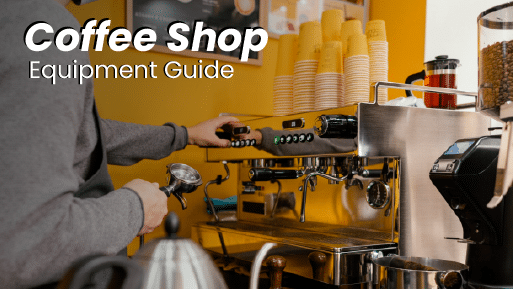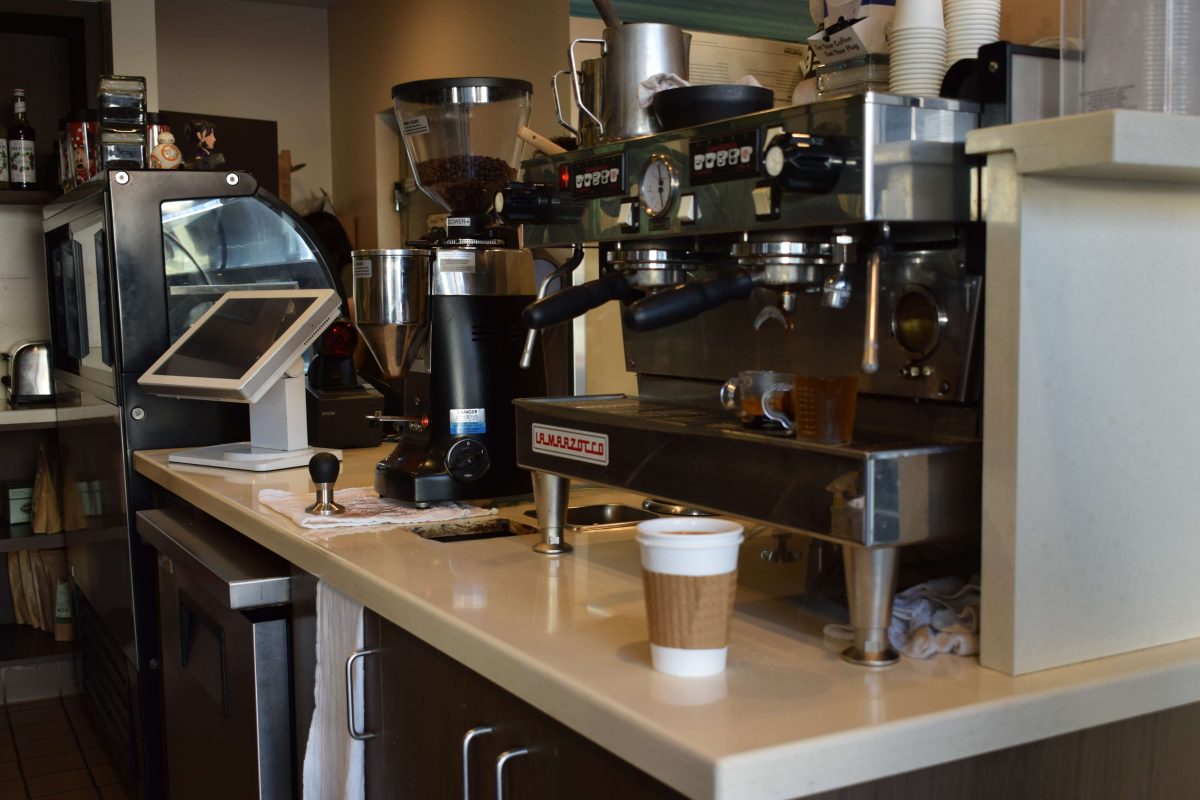
The coffee shop industry has exploded over the last several decades, as have competition and customer expectations. With nearly $48 billion in sales in the United States alone, Americans are drinking more coffee than ever, and they’re doing so at small, local businesses.
Opening a new coffee shop is undoubtedly a daunting task. It’s also an expensive endeavor.
Espresso machines, grinders, refrigeration, and other essential coffee shop equipment can run you a pretty penny. Small store details, like mugs and saucers, can also add up quickly. Hence, a solid business plan, proper budgeting, and healthy self-confidence are essential.
Part of this planning involves preparing a coffee shop equipment list. Thankfully, with the right formula, that expensive equipment can pay itself off quickly. Here, we’ve compiled a list of coffee shop equipment that every new establishment should consider. Read on for more.
Making the Coffee
1. Coffee Grinder
No matter how great your espresso machine is, the espresso won’t taste up to par without a correct grind. This purchase probably isn’t as fun as your espresso machine, but it’s just as important.
Again, ask yourself a few questions: Do you prefer manual or automatic? Do you need different grinds for French press, drip, espresso, etc.? Do you want a digital measurement of each grind? This blog is devoted entirely to coffee grinders and offers in-depth grinder analysis.
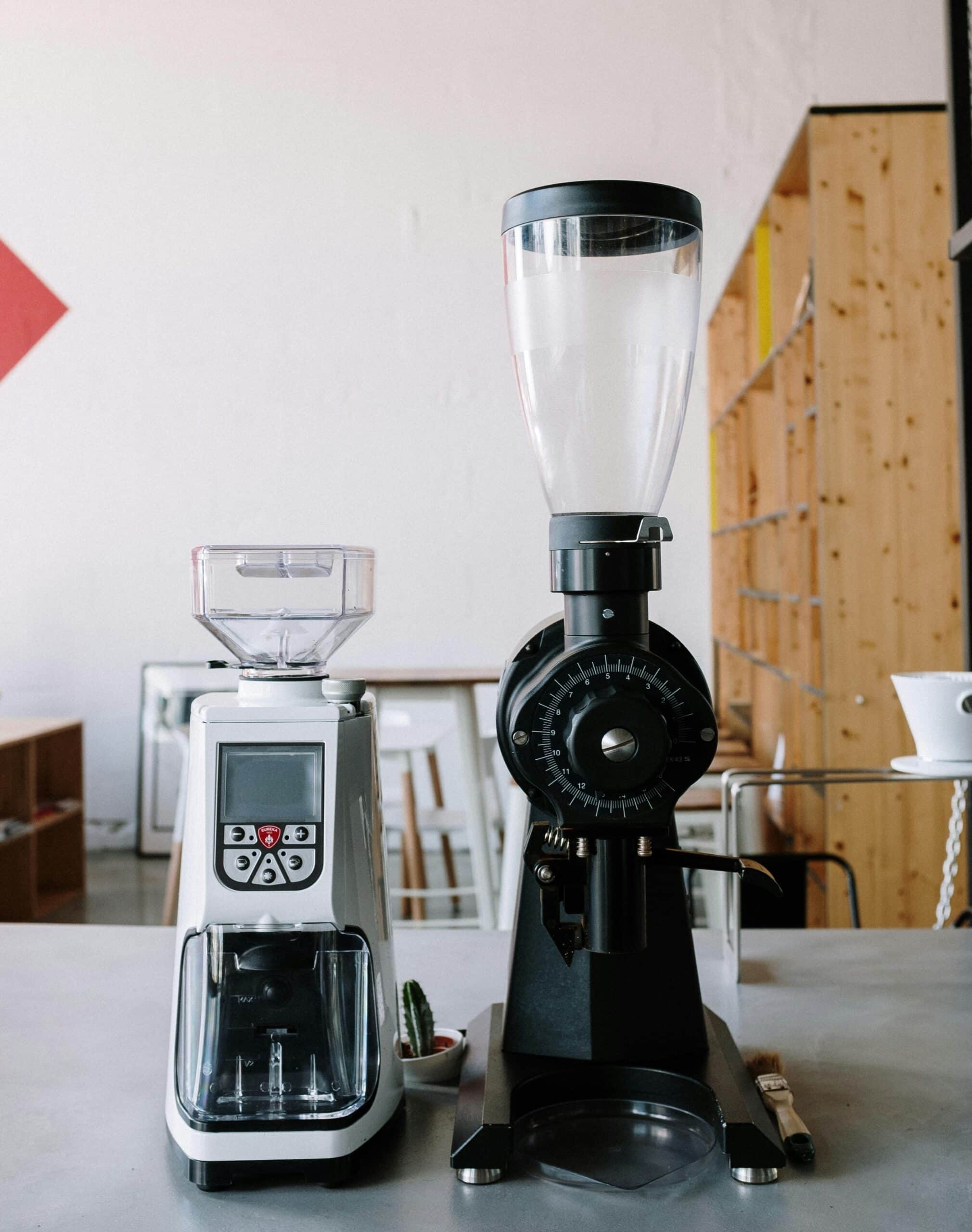
2. Water Filtration System
New coffee shop owners often overlook exceptional water filtration systems. It’s easy to focus on the beans, the roasting, and the espresso machine. A regular cup of coffee is 98% water, and the quality can drastically affect your coffee.
You might also consider a reverse osmosis system that removes impurities but remineralizes the water. Alkaline water is another popular trend, balancing out the intense acidity in coffee. This water is anything but basic.
3. Scales
Accurate scales are indispensable in coffee shops to precisely measure the grounds for espresso and brewed coffee. Proper measurements ensure consistency in flavor and strength.
Scales help baristas maintain the ideal coffee-to-water ratio, which is crucial for extracting the desired flavors and aromas. Utilizing scales also aids in quality control, guaranteeing each cup meets the exacting standards customers expect.
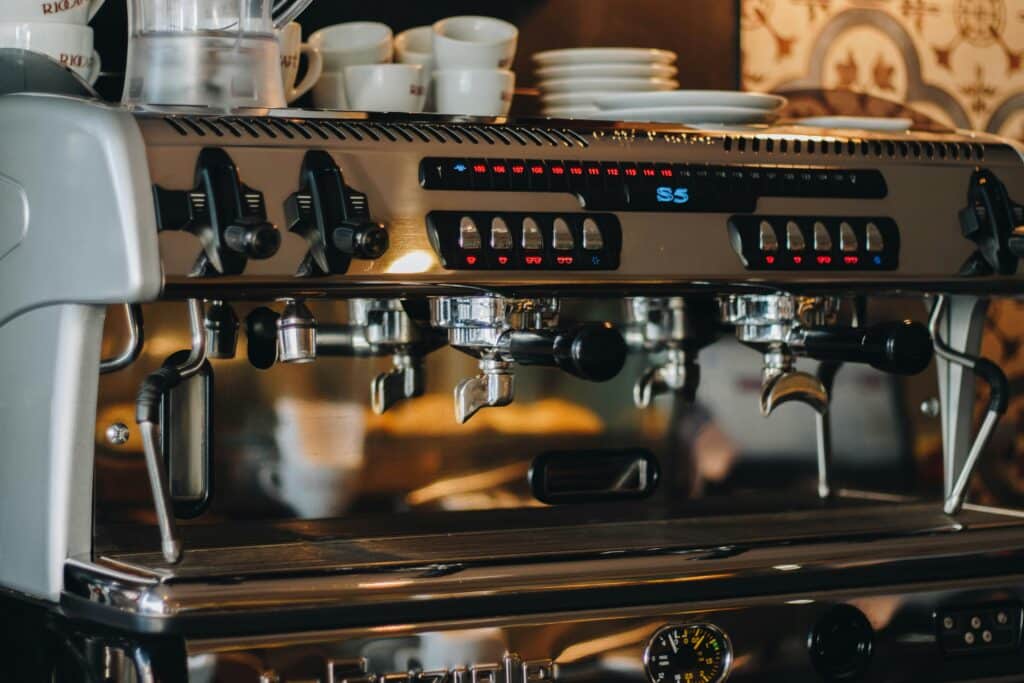
4. Espresso Machine
As previously mentioned, opening a coffee shop can be expensive. A quality industrial espresso machine can cost anywhere from a couple thousand to well over ten thousand dollars. Nonetheless, it is essential for every coffee shop.
Luckily, there is a wide range of budget-dependent options. Do you want a manual, semi-manual, or automatic machine? How many group-heads are needed? Would you benefit from a large, ultra-efficient machine or something smaller for a lower volume?
Make sure you do your research!
5. Drip Brewer
Depending on the kind of coffee shop you’re opening, you may want an industrial drip brewer. These have become less popular in recent years as higher demand for espresso-based drinks and alternative brewing methods, like French press and pour over, have replaced them.
However, a solid drip brewer could be a lifesaver if you plan on serving a high volume of morning customers in a rush. They’re much more inexpensive than an espresso machine and can still make a great cup of coffee.
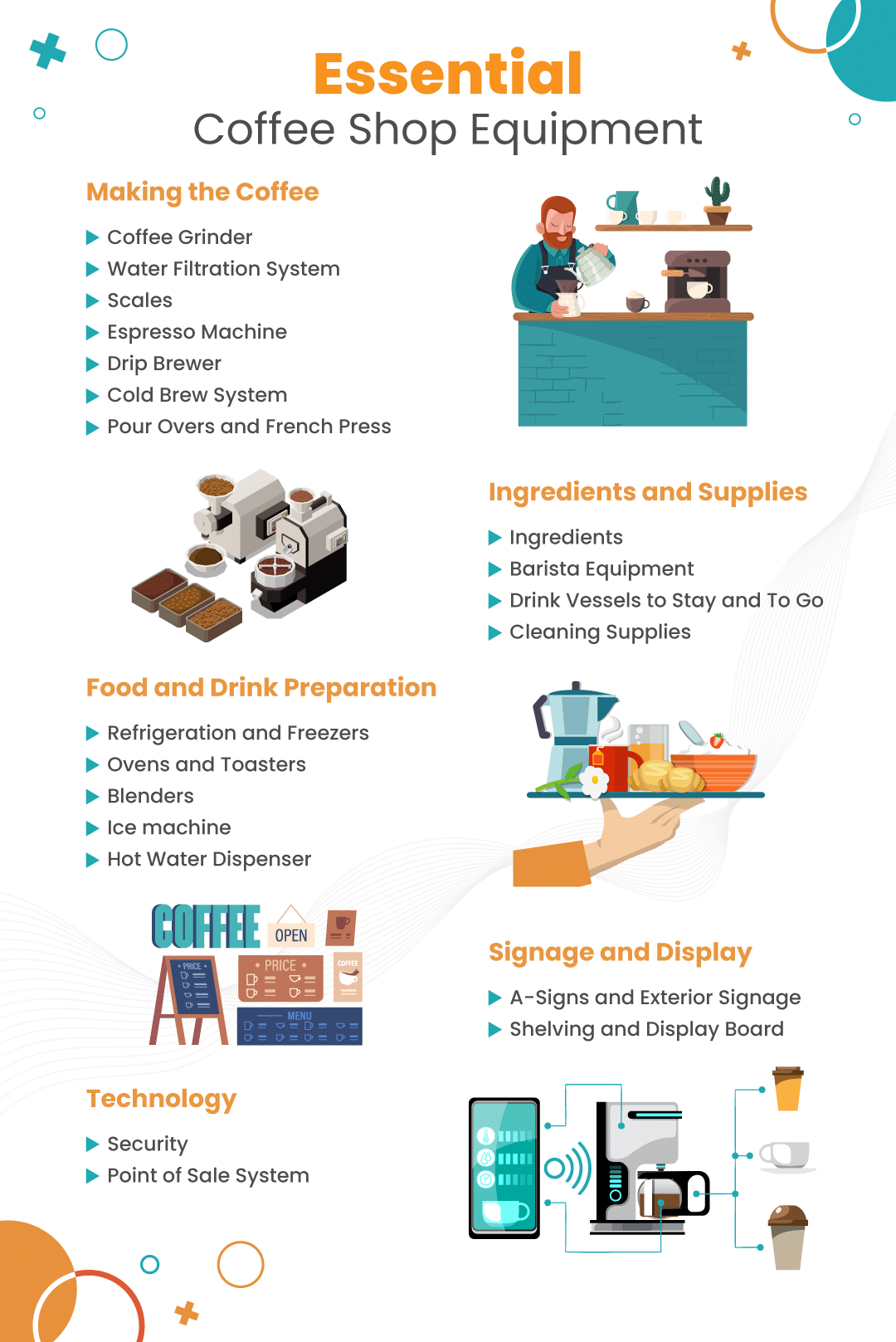
6. Cold Brew System
According to Starbucks, 75% of their beverage revenue is now from cold drinks. One of the most popular of these drinks is cold brew.
A cold brew system is a method of coffee extraction that utilizes cold water over a longer brew period to produce a smooth and flavorful concentrate. Components typically include a brewing vessel, such as a large jar or specialized cold brew maker, a filtration system, a fine mesh sieve or paper filters, and storage containers for the finished cold brew concentrate.
7. Pour Overs and French Press
Pour Overs
Pour over coffee is a manual brewing method that involves pouring hot water over coffee grounds in a filter, allowing the water to extract the flavors as it drips into a serving vessel.
To serve pour over coffee in a coffee shop, you’ll need:
- A gooseneck kettle for precise pouring control
- A dripper or pour over cone to hold the filter and grounds
- Quality filters that fit the chosen dripper
- A scale for accurately measuring coffee and water
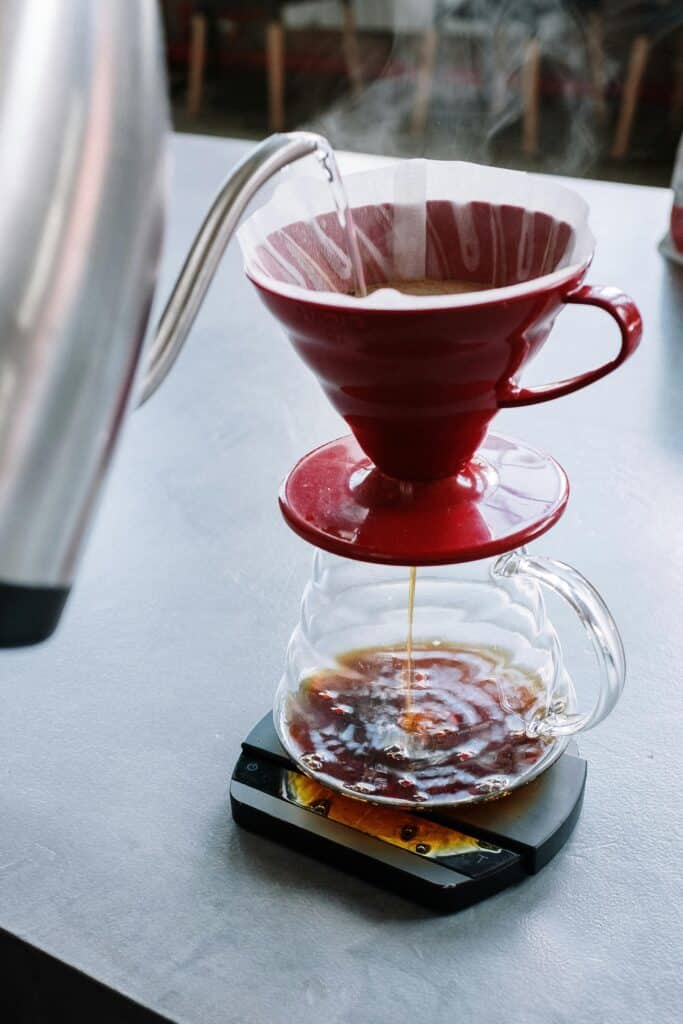
French Presses
French presses are manual coffee brewing devices consisting of a glass or metal cylinder with a plunger and mesh filter. Coffee grounds steep in hot water before being pressed down to separate them from the brewed coffee. Having a timer handy helps ensure consistency in the brewing process.
Coffee shops often use French presses to cater to customers who prefer a full-bodied and robust coffee experience. They appeal particularly to those staying to enjoy their beverages in-house.
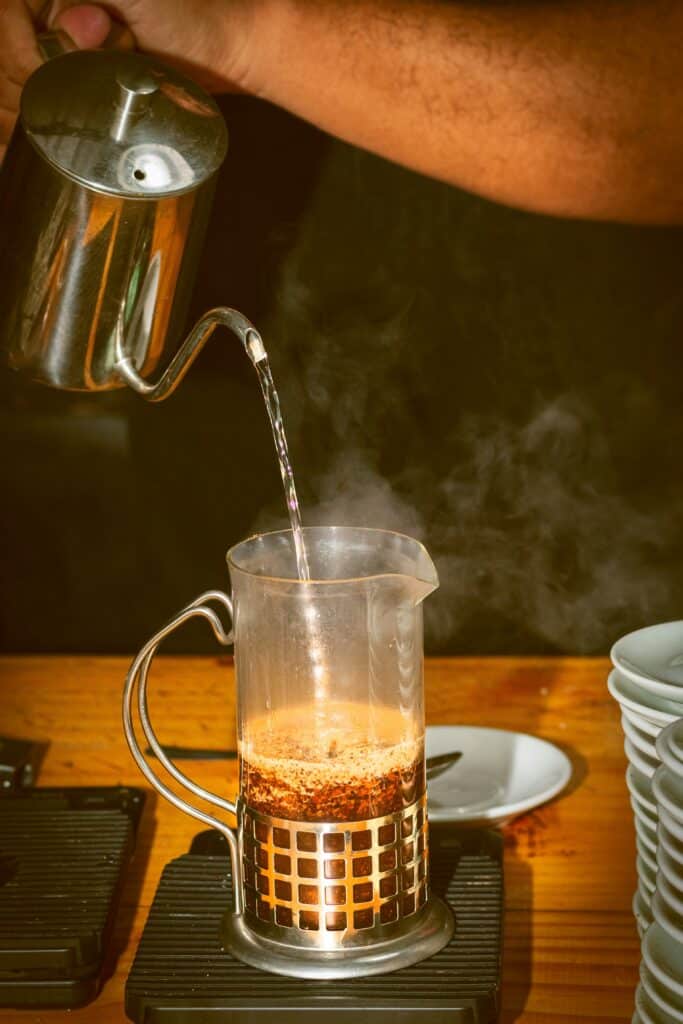
Schedule a KORONA POS Demo Today
Speak with a product specialist and learn how KORONA POS can power your business needs.
Ingredients and Supplies
8. Ingredients
The more drinks you decide to sell in your coffee shop, the more ingredients you must stock. These often include:
- Coffee Beans: The foundation of a coffee shop’s menu. To satisfy different tastes, offer various options, including single-origin beans, blends, and decaffeinated varieties. There are endless options to choose from. For those opening a coffee shop franchise, sourcing will be more streamlined but with fewer options.
- Espresso: Serves as the base for numerous coffee drinks, such as Americanos, lattes, and flat whites. A consistent supply of high-quality espresso beans is essential for optimal flavor and aroma.
- Milk: Essential for crafting various coffee beverages such as lattes, cappuccinos, and macchiatos. Modern cafes must cater to customers’ preferences for both dairy and non-dairy options like almond, soy, and oat milk.
- Teas: Provide a selection of hot and iced beverages for customers who prefer alternatives to coffee. Offer options like black, green, herbal, matcha, and other specialty teas.
- Syrups: Add flavor and sweetness to coffee and tea beverages. Clientele can customize their drinks with simple syrup, vanilla, caramel, hazelnut, and seasonal flavors.
- Honey: Provide a natural sweetener option. A subtle hint of honey complements the flavors of coffee and tea.
9. Barista Equipment
Baristas are the most essential coffee shop employees. Ensuring they are equipped with all the necessary tools helps guarantee customer satisfaction and coffee shop success. Consider the following:
- Gloves
- Gloves are necessary for maintaining hygiene standards in handling food and beverages.
- Baristas wear gloves when handling food items or when there’s a contamination risk to ensure customers’ safety.
- Aprons
- Aprons protect baristas’ clothing from spills and stains during the coffee-making process.
- They help maintain a professional appearance while serving the practical function of keeping uniforms clean and presentable.
- Knock Boxes
- Knock boxes provide a convenient and sanitary way for baristas to dispose of used coffee grounds.
- By promptly removing spent grounds from portafilters and espresso machines, baristas maintain cleanliness and efficiency in their workspace.
- Other Tools:
- Baristas require tools such as tampers, brushes, and steaming pitchers to prepare espresso-based drinks more precisely.
- These tools help correct tamping coffee grounds, clean espresso machines, and froth milk to create the desired texture for drinks like lattes and cappuccinos.
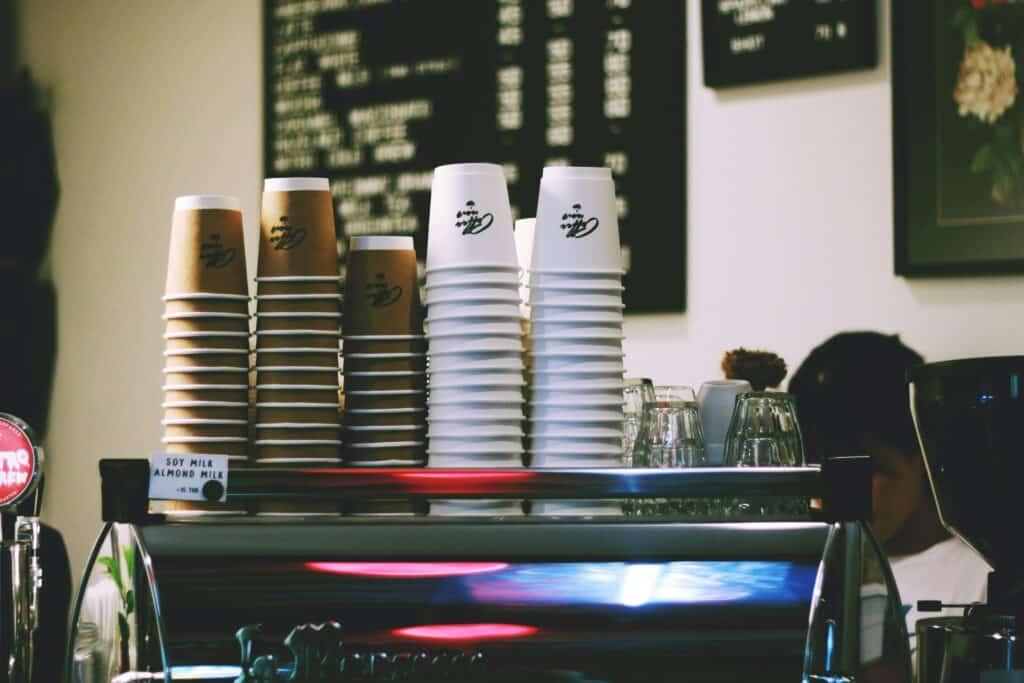
10. Drink Vessels to Stay and To Go
When running a coffee shop, consider what kind of vessel each drink will be served in when you offer it. That goes for each type of coffee, tea, and iced tea and all size variations.
Remember, mugs will break, and paper sleeves can go missing. Keep a generous safety stock of in-house vessels and to-go cups so you never run out.
For To-Go Drinks:
- Paper cups
- Paper cups are essential for serving hot and cold beverages to customers on the go, providing convenience and portability.
- Lids
- Lids help prevent spills and retain heat for hot drinks, ensuring customers a safe drinking experience.
- Straws
- Straws are optional accessories for cold beverages, providing ease of consumption for customers while on the move.
- Sleeves for hot drinks
- Sleeves offer insulation and protection from the heat of hot beverages, ensuring customers can comfortably hold their drinks without the risk of burning their hands.
For In-House Drinks:
- Mugs
- Mugs are traditional vessels for serving hot drinks such as coffee and tea, offering a comfortable and familiar drinking experience for customers who choose to dine in.
- Glasses for cortados
- Cortados are typically served in small glasses, allowing customers to appreciate the drink’s color and delicate presentation.
- Teapots
- Teapots are essential for brewing and serving loose-leaf teas, providing more traditional, elegant, experiential in-shop enjoyment.
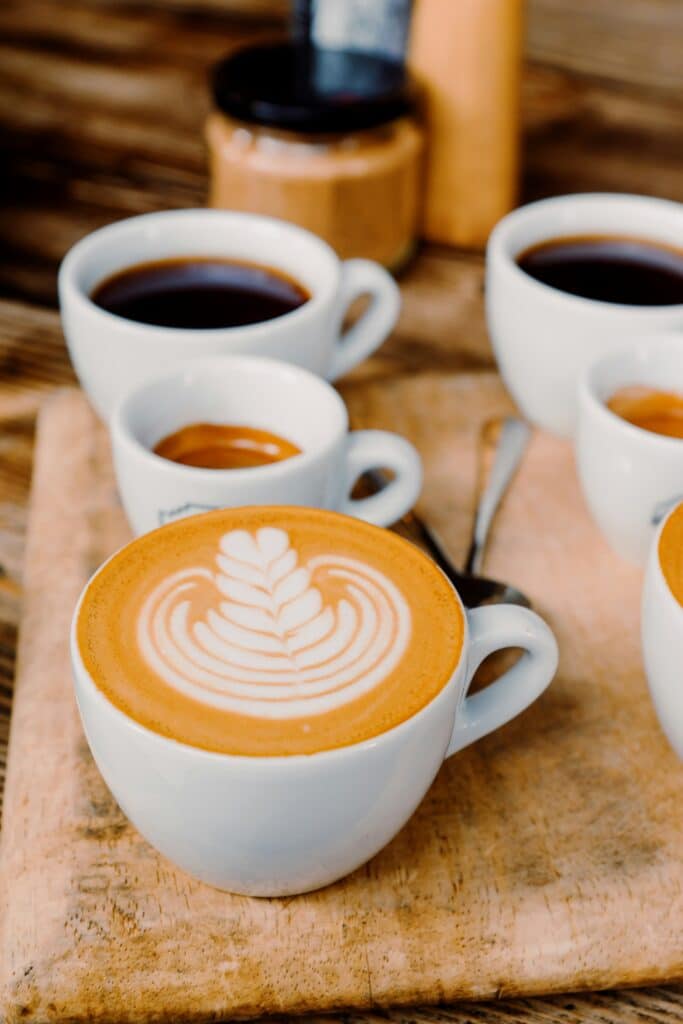
11. Cleaning Supplies
Cleaning supplies are essential in a coffee shop for maintaining hygiene standards and ensuring a pleasant environment for customers. Barista-specific brushes and detergents are necessary for coffee equipment to keep espresso machines, grinders, and brewing equipment free from coffee residues and oils. This maintenance ensures not just sanitation but also better-tasting coffee.
Sanitizing wipes, surface cleaners, and food-safe disinfectants are crucial for wiping down counters, tables, and food preparation surfaces in food service areas. This prevents cross-contamination and maintains food safety standards. Stay health code compliant, avoid allergy issues, and keep those coffee shop licenses!
Finally, dishwashing supplies such as dish soap, scrub brushes, and sanitizing solutions effectively clean dishes, utensils, and equipment used in kitchen and service areas.
The more I learn to use KORONA POS, and with the help of awesome customer support, the more I believe this POS system could be a very good fit for many types of businesses out there. What I love the most about this software is the 24/7 customer service and reporting function which are very easy to use.
-Kevin L.
Food and Drink Preparation
12. Refrigeration and Freezers
Proper refrigeration is necessary for any coffee shop. For example, you’ll need a more substantial system to serve food or juices. Consider a chef’s refrigeration system with pans or perhaps a walk-in refrigerator for a more extensive operation.
Moreover, many newer systems can be beautifully integrated into your coffee shop, leaving your aesthetic untouched. Space is a common issue for small coffee shops, so fitting the equipment in naturally is essential.
13. Ovens and Toasters
Likewise, you’ll benefit from equipment that can heat your products. The majority of coffee shops serve food, many now featuring extensive menus. Proper ovens and toasters are becoming essential for new coffee shops.
Look for machines that are convenient to use and heat quickly. For this reason, most quick-service items should not take much preparation or inconvenience. Consequently, convection ovens are pricey but are remarkably efficient, easy to install and use, and generally have long lives.
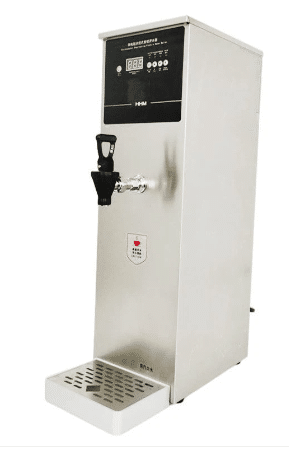
14. Hot Water Dispenser
Coffee shops benefit from having a hot water dispenser that provides piping hot water quickly and efficiently for various purposes. It can expedite the process of brewing teas, preparing hot chocolate, and brewing pour-overs or French presses.
Investing in a quality option ensures that hot water is always ready whenever needed.
15. Blenders
Coffee shops may want to use blenders to expand their menu offerings and cater to customers’ diverse preferences, particularly those who enjoy blended or frozen beverages. High-performance commercial blenders are ideal for coffee shops, as they can handle frequent use and mix various ingredients to achieve smooth textures.
With blenders, coffee shops can craft popular drinks like frappes, smoothies, and blended iced coffees. These drinks attract a broader customer base and increase profits during warmer months or as an alternative to traditional coffee drinks.
16. Ice machine
An ice machine guarantees a steady supply of ice for crafting cold beverages like iced coffees, iced teas, and smoothies. Investing in a good quality ice machine is beneficial as it ensures your cafe never runs out of ice, even during peak store hours.
Prevent any disruption to drink service and consistently meet customer demands for refreshing and chilled beverages.
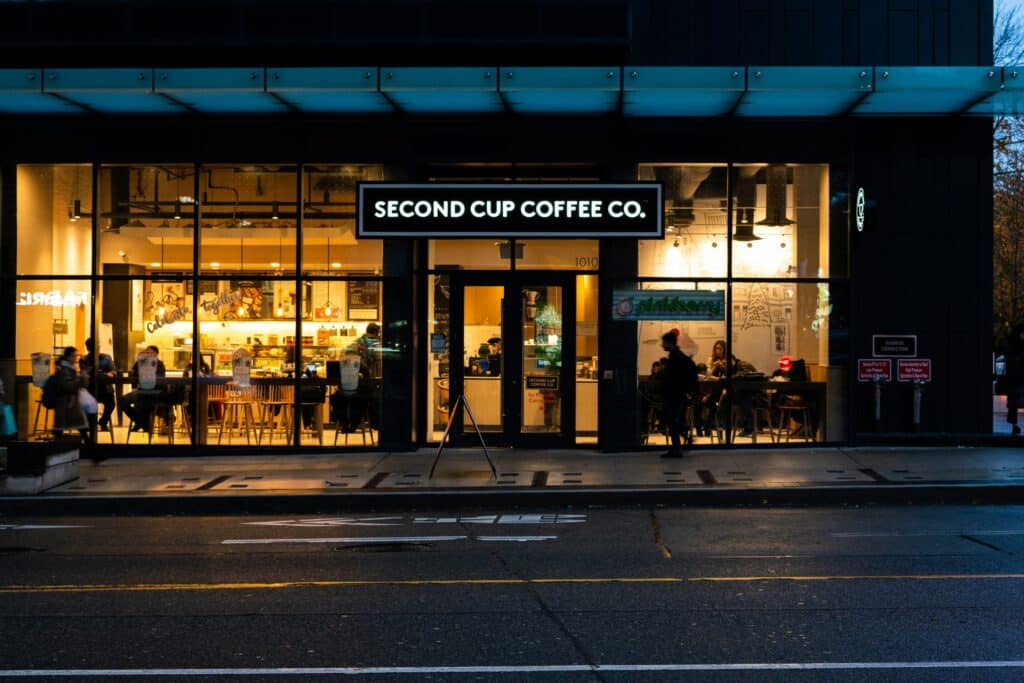
Signage and Display
17. A-Signs and Exterior Signage
Invest in eye-catching A-frame signs and exterior signage to attract passing foot traffic and communicate specials or grow brand identity. Vibrant and well-designed signs draw attention to the shop’s specialties, such as artisanal coffee blends, specialty drinks, and freshly baked pastries.
Clear signage displaying the coffee shop’s logo, menu highlights, and promotions can entice potential customers and encourage them to enter.
Strategically placed signs indicating the shop’s presence from a distance will help establish a strong brand presence in the local community. Finally, don’t forget to create an attractive window.
18. Shelving and Display Board
Organized businesses are typically happier businesses. Shelving and display materials can be easily overlooked but are critical for smooth operation. Crowded work areas are generally inconvenient and reflect on the shop as a whole.
Like refrigeration, with some creativity, it can beautifully integrate proper storage into your coffee shop as part of the whole.
Similarly, a good display case with a refrigerated section can significantly enhance the presentation of baked goods and other food items in a coffee shop. An organized display area with enticing products will ensure the movement of items more quickly.
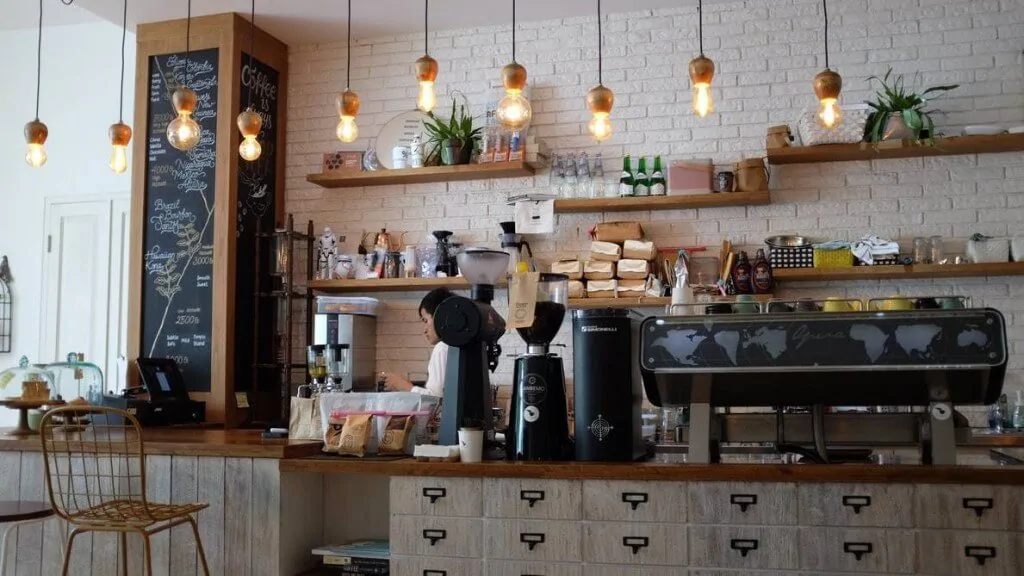
Technology
19. Security
Coffee shops may implement various security measures to safeguard their assets, premises, and employees. This often includes installing security cameras inside and outside the shop to monitor activity and deter potential theft or vandalism.
Shops should have a secure cash management system, such as locking cash registers and regularly depositing cash in a safe or bank. Other security measures might include alarm systems, motion-sensor lighting, and ensuring all entry points are properly secured when the shop is closed.
20. Point of Sale System
One of your final decisions before opening is choosing the right coffee shop point of sale. Don’t make this decision lightly. Your coffee shop POS system can substantially affect your business.
Get started with KORONA POS today!
Explore all the features that KORONA POS has to offer with an unlimited trial. And there’s no commitment or credit card required.
For any quick-service store or coffee shop, fast transaction speed is vital. Your point of sale solution can also help with inventory, ordering, time tracking, marketing, customer loyalty and more. KORONA POS has software and features specifically designed for coffee shops.
Good Luck with Your Coffee Shop Equipment Decision!
There are plenty of other things to consider when opening a new café or coffee shop, but hopefully, these pointers are helpful. Find out more about KORONA POS café point of sale by clicking below!

